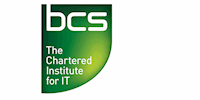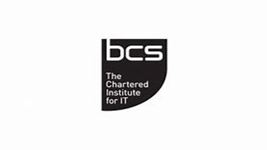
Official BCS HEQ Level 4 in Information Systems with Additional support
HEQ Including 3 Official Exams and Registration, additional Java, Python - Coding, Developing & Programming Bundle
e-courses4you
Summary
- Exam(s) / assessment(s) is included in price
- TOTUM card available but not included in price What's this?
Add to basket or enquire
Overview
BCS HEQ is a three-stage UK undergraduate degree equivalent program of learning aimed at students with
more limited IT knowledge, qualifications, and professional experience to allow them to progress to higher
levels of knowledge and competency.
Students will also get access to the following courses to help aid the training:
Complete 16-course Coding, Developing & Programming Bundle
- C++ Programming Fundamentals
- TT for Adobe Dreamweaver CC
- The Foundations of HTML, CSS & JavaScript
- HTML5 and CSS3 Fundamentals
- jQuery: Learn by Example
- jQuery for Beginners
- JavaScript Fundamentals
- Bootstrap 4 – Exploring New Features
- Develop Responsive Websites with Bootstrap 3
- MySQL Fundamentals
- Java Web Services and XML: ORACLE Exam Preparation
- HTML & CSS3 Website Wireframing
- HTML5 & CSS3 Building Responsive Websites
- HTML5 & CSS3 Site Design
- Adobe XD – User Experience Design Essentials
- Angular 7 – Getting Started
Qualification
Level 4 Certificate of Higher Education
Course media
Description
Encompassing three core modules, the Level 4 Certificate in IT explores the
fundamentals of computer and network technology, processor architecture,
operating and information systems, software development, and networks.
Candidates will gain a solid foundation upon which they will be able to build
a career pathway into information technology. Career opportunities include
entry-level positions in the rapidly growing fields of computer science and
software development.
Upon successful completion of this qualification, candidates will be equipped
with the knowledge and understanding to enable them to progress to a
a broad range of further development areas such as Big Data management,
software engineering and web application development. Candidates will be
prepared to progress onto the BCS Level 5 Diploma in IT, with the ability to
customise their learning pathways based on their areas of special interest.
INFORMATION SYSTEMS
1 Data Management:
Explain the nature of information.Describe simple statistical measures.
Explain requirements analysis.
Describe database design issues.
Demonstrate understanding of multimedia and
hypermedia.
2 Systems analysis and design:
Explain the systems development life-cycle.
Describe prototyping and system development tools.
Explain structured systems analysis and design.
Analyse human computer interaction design.
All 3 mandatory units need to be passed to gain the qualification.
3 Organisations:
Explain the flow of information in an organisation.
Describe personnel and social considerations.
Describe quality assurance aspects.
Explain the advances in technology and the impact of
emerging trends in IS.
SOFTWARE DEVELOPMENT
1 Fundamental concept of the Programming Process:
Explain the concept of an algorithm.
Design algorithms.
Develop code from an algorithm.
Utilise pseudocode and flowcharts.
2 Phase Specific issues of Software Development:
Describe different approaches to software construction.
Describe the objectives and principles of testing, derive
test cases from a given specification.
Discuss the need for software documentation and the
nature of software documentation in a given context.
Describe mechanisms for assuring software quality and
security within the software development process.
Discuss a range of new or emerging software
technologies.
3 Introduction to Programming concepts:
Discuss the use of data types and type-checking in
programming languages.
Discuss the use of callable units in the development of
code and write code examples that use callable units.
Explain the concept of a data structure and illustrate
the explanation concerning commonly used data
structures.
Compare and contrast a variety of sorting and searching
algorithms.
4 Files:
Describe techniques for storing data in secondary storage.
5 Intro to the concept of user interface design:
Discuss aspects of user interface design.
6 Role and need for system software:
Discuss the nature and the utility of system software.
7 Case studies in problem-solving/algorithm analysis:
Develop a software solution to a real-world problem.
COMPUTER AND NETWORK TECHNOLOGY
1 Fundamental:
Demonstrate and apply representation of decimal integers
within computer systems.
Explain and design a system that uses a variety of logic
gates.
Demonstrate and apply sequential logic elements.
2 Processor Architecture:
Explain different types of computer systems.
Describe the concept of a stored program.
Explain different instruction formats.
Describe trends in processor technology.
Explain the characteristics and performance of
peripherals.
3 Introduction to operating systems and system software:
Understand Human-Computer Interaction.
Explain the concept of multitasking.
Demonstrate understanding of system performance.
4 Networks:
Describe communication principles.
Explain different protocols used for data transmission.
Describe different network communication equipment.
Explain security risks on computer networks and their
impact.
Explain advances in communication technology.
Who is this course for?
Anyone who wants to further there education.
Requirements
There are no specific entrance requirements for the Certificate in IT.
Candidates are required to become a member of BCS, The Chartered Institute for IT, to sit and be awarded the
qualifications. Candidates may apply for a four-year student membership that will support them throughout
their studies.
Career path
Candidates will gain a solid foundation upon which they will be able to build
a career pathway into information technology. Career opportunities include
entry-level positions in the rapidly growing fields of computer science and
software development.
Questions and answers
Reviews
Currently there are no reviews for this course. Be the first to leave a review.
Legal information
This course is advertised on reed.co.uk by the Course Provider, whose terms and conditions apply. Purchases are made directly from the Course Provider, and as such, content and materials are supplied by the Course Provider directly. Reed is acting as agent and not reseller in relation to this course. Reed's only responsibility is to facilitate your payment for the course. It is your responsibility to review and agree to the Course Provider's terms and conditions and satisfy yourself as to the suitability of the course you intend to purchase. Reed will not have any responsibility for the content of the course and/or associated materials.








